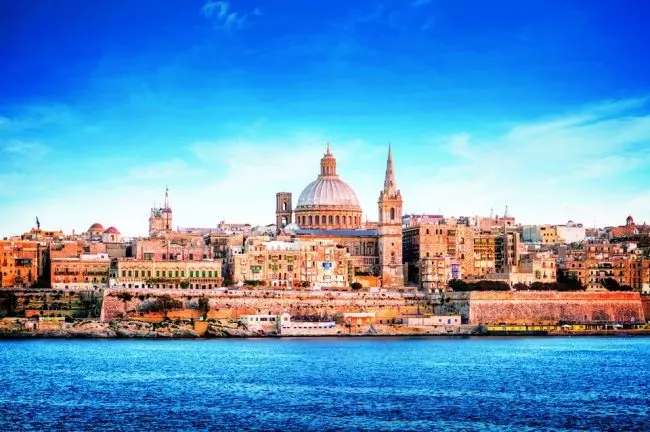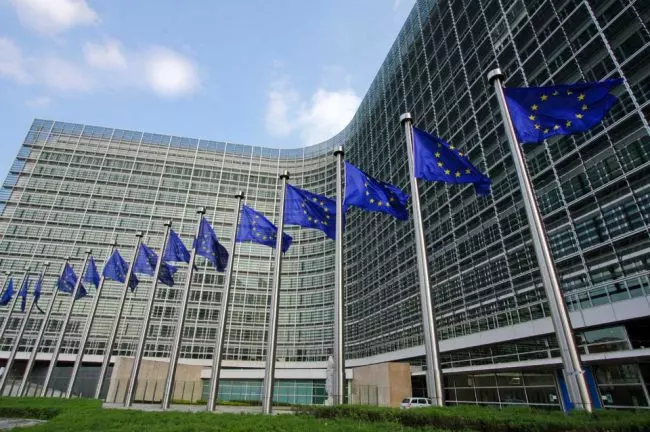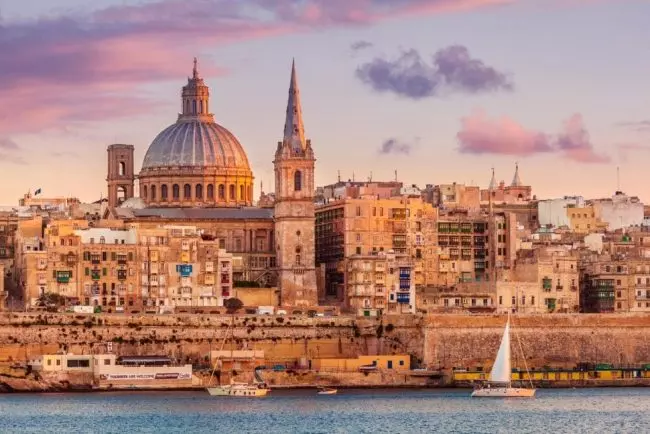 Malta is a fairly small island country which has found a way to boost its economy and make the best of the given circumstances. Since it does not have an abundance of natural resources, gaming has become its primary source of fresh revenue and a way to provide many online businesses with a field where they can develop. The competitive environment and the benefiting revenue taxes levels are the two factors which make the location more appealing to many entities in the gaming world and they prefer it.
Malta is a fairly small island country which has found a way to boost its economy and make the best of the given circumstances. Since it does not have an abundance of natural resources, gaming has become its primary source of fresh revenue and a way to provide many online businesses with a field where they can develop. The competitive environment and the benefiting revenue taxes levels are the two factors which make the location more appealing to many entities in the gaming world and they prefer it.
The gaming industry in Malta is one of the most progressive and rapidly developing sectors of the economy and as such, there is always news about it. The gaming regulator in the country is constantly looking for ways in which it can improve the existing framework and provide all entities in the industry with the necessary protection and support. Throughout the last twelve months, a lot of things have changed in the field and it could be said that quite the progress has been made when it comes to the regulation and how all parties involved in the gaming business are able to interact with each other.
Maltese Gaming Authority Reports
 According to a performance report published by the Maltese Gaming Authority for the first half of 2017, the gaming industry has contributed to as much as 12 percent of the total economic revenue. This amount equals some €556 million to the economy in the country, marking a year-on-year jump in comparison to the 11.8 percent which was reported for the same time period in 2016. By the end of June, the field has already created an excess of 6,400 full-time job positions, of which 5,542 were employed by remote gaming operators.
According to a performance report published by the Maltese Gaming Authority for the first half of 2017, the gaming industry has contributed to as much as 12 percent of the total economic revenue. This amount equals some €556 million to the economy in the country, marking a year-on-year jump in comparison to the 11.8 percent which was reported for the same time period in 2016. By the end of June, the field has already created an excess of 6,400 full-time job positions, of which 5,542 were employed by remote gaming operators.
Most of the gaming entities in Malta are remote and they utilize the relatively low rates of the taxes which the regulators have appointed. Due to the big interest, the number of gaming entities which have licenses issued by the regulator grew by 6 percent year-on-year. Represented in figures, this equals 282 licensed companies as of June this year, meaning that the overall number has surged. Most of these companies hold online gambling licenses which makes Malta the leading force in the online gambling in Europe.
Most of the brick-and-mortar gaming operators among which casinos, bingo, and gaming parlors, have reported a surge in the number of visitors as well, especially on the gaming parlor side. As for the enforcement side of the industry, the MGA announced that over the first half of the year it has canceled one gaming license, suspending a total of four others, and imposing some €90,000 in taxes for a wide variety of regulatory breaches. In the same time, the gaming regulator has conducted as many as 74 audits and 921 due diligence tests, aiming to make sure that all companies which have licenses for operation are in fact meeting the high standards of the Maltese gaming sector.
Skill Games Regulations
 This January brought the news that the gaming regulator in Malta was putting its brand new framework in relation to skill games. This new approach aimed to focus on protecting the rights of the customers and providing fair-play. At the same time, it had to make sure that no criminal activities are proliferating in the field, which made the new regulation necessary in the first place. These licenses for skill games are valid for five years and the fees amount to €8,500 per year. In return, the companies which operate under such license have to pay a 5-percent tax on any gaming revenue they amass, with a total tax payable amounting to €466,000 per annum.
This January brought the news that the gaming regulator in Malta was putting its brand new framework in relation to skill games. This new approach aimed to focus on protecting the rights of the customers and providing fair-play. At the same time, it had to make sure that no criminal activities are proliferating in the field, which made the new regulation necessary in the first place. These licenses for skill games are valid for five years and the fees amount to €8,500 per year. In return, the companies which operate under such license have to pay a 5-percent tax on any gaming revenue they amass, with a total tax payable amounting to €466,000 per annum.
The said announcement was closely followed by a second one, this time coming from DraftKings, which stated that the daily fantasy sports operator had received its license for operation and could, therefore, pave the way for expanding across Europe. No additional permits or licenses were needed in order to spread across other country-members of the European Union and this move drastically changed the landscape of Europe’s gaming sector. It should be taken into account that DraftKings had been operating in the UK for about a year when it received the gaming license from MGA, but the operator realized that the British license would not provide a chance for optimal expansion.
Online Gambling Monitoring Controversy
 This spring brought more attention to the gaming industry in Malta and the monitoring methods of its gambling authority in particular. The regulator suffered accusations that it does not provide an adequate level of supervision when it comes to its license-holders and this. The issue with the monitoring comes from the fact that MGA covers online casinos located both on the island and across Europe. This makes the proper overseeing of all of them rather tricky and it could give good grounds for criminal activities to take place. In response to these claims, the gambling authority stated that there have not been such instances.
This spring brought more attention to the gaming industry in Malta and the monitoring methods of its gambling authority in particular. The regulator suffered accusations that it does not provide an adequate level of supervision when it comes to its license-holders and this. The issue with the monitoring comes from the fact that MGA covers online casinos located both on the island and across Europe. This makes the proper overseeing of all of them rather tricky and it could give good grounds for criminal activities to take place. In response to these claims, the gambling authority stated that there have not been such instances.
Joseph Cuschieri, the Chairman of MGA, claimed that his decision to avoid attaching stickers for tracking the hardware casino equipment is because he has discovered certain discrepancies between the registered servers and those which are actually in operation. In addition, Mr. Cuschieri stated that the overall control over the equipment of online casinos has been upgraded and taken into consideration the tagging method utilized by many in the field.
Introduction of the First Part of Licensee Relationship Management System
 In an attempt to facilitate the communication among all parties involved in an online gaming industry and to make the process smoother, the gaming regulator of Malta decided to introduce a new Licensee Relationship Management System which is available online. With the help of a trustworthy web portal, everyone could gain access to the innovative method of regulating the field. The product was the fruit of joint efforts of MGA and Microsoft and it was aiming to grant the licensed casino operators with an easier medium for interaction with the authorities of the country and the sector.
In an attempt to facilitate the communication among all parties involved in an online gaming industry and to make the process smoother, the gaming regulator of Malta decided to introduce a new Licensee Relationship Management System which is available online. With the help of a trustworthy web portal, everyone could gain access to the innovative method of regulating the field. The product was the fruit of joint efforts of MGA and Microsoft and it was aiming to grant the licensed casino operators with an easier medium for interaction with the authorities of the country and the sector.
The new system was expected to simplify both the online and land-based processes taking place in the gaming industry in Malta by digitalizing them and elevating their performance to the next level. It included the launch of three basic online services among which an application for remote gaming licenses, which assists gaming operators in overseeing their work more efficiently. The other two online services introduced dynamic seal URL requests, as well as submission of players liability and gaming tax reports. This well-rounded program for action provides all licensees with the opportunity to save themselves a lot of effort when it comes to keeping their applications in track and meeting all standards of the regulator.
At the beginning of November, the regulator announced that the second part of the all-encompassing management system is ready to be launched and implemented to the already existing first part. Among the online applications and services which are going to be included in the second part of the project are the declaration of the Go Live application, as well as incident reporting. The second phase is also featuring amendments to the approved company details, to the approved personal details, as well as to the technical setup.
The addition to the services offered with the first phase came to fruition last month and their positive effect could already be observed throughout the gaming industry in Malta. The online location is constructed in a way which makes easy the access and simplifies the whole process. With its help, a wide variety of online and land-based processes finally have their hub and people can reach them at all times. In the future, the system is expected to cover casinos, gaming parlors, the national lottery, and commercial bingo.
European Union Taxes Regulations
 Last month saw the announcement that the European Union is planning to introduce a new and more strict tax regime for digital companies in an attempt to provide more reliable regulation to the field. This decision has the potential to change the landscape of the country which provides good conditions for the development of many gambling operators. Maintaining the taxes rates on the lower side has been a common practice on the Mediterranean island, but this beneficial regulation could soon be changed. It was reported by Politico, that there is a new digital taxation scheme on the way, which is going to cover the European Union in its entirety.
Last month saw the announcement that the European Union is planning to introduce a new and more strict tax regime for digital companies in an attempt to provide more reliable regulation to the field. This decision has the potential to change the landscape of the country which provides good conditions for the development of many gambling operators. Maintaining the taxes rates on the lower side has been a common practice on the Mediterranean island, but this beneficial regulation could soon be changed. It was reported by Politico, that there is a new digital taxation scheme on the way, which is going to cover the European Union in its entirety.
Because of its high dependency on corporate tax revenues, Malta is expected to be seriously affected by any changes related to international taxation regulations, as confirmed in a statement coming from the International Monetary Fund. The proposal is expected to be issued in the spring of 2018. In the meantime, the government of Malta should prove that it is working towards improving the way the industry works. It could be recalled that Malta was among the pioneers in creating clear regulation for the gambling sector after it became a member of the EU back in 2004.
In Conclusion
 Malta has come a long way since its first steps in the gambling industry and is now one of the leading forces in the online gambling sector. Hosting the largest number of online-based gaming businesses, the island country provides a safe environment for development, while benefiting from the taxes they have to offer. The year of 2017 saw a lot of improvement when it comes to the regulation of the sector and the Maltese Gaming Authority is putting a lot of effort into offering its licensees with the most wholesome and well-rounded operation experience. These last twelve months brought many benefits which sets the bar high for 2018.
Malta has come a long way since its first steps in the gambling industry and is now one of the leading forces in the online gambling sector. Hosting the largest number of online-based gaming businesses, the island country provides a safe environment for development, while benefiting from the taxes they have to offer. The year of 2017 saw a lot of improvement when it comes to the regulation of the sector and the Maltese Gaming Authority is putting a lot of effort into offering its licensees with the most wholesome and well-rounded operation experience. These last twelve months brought many benefits which sets the bar high for 2018.